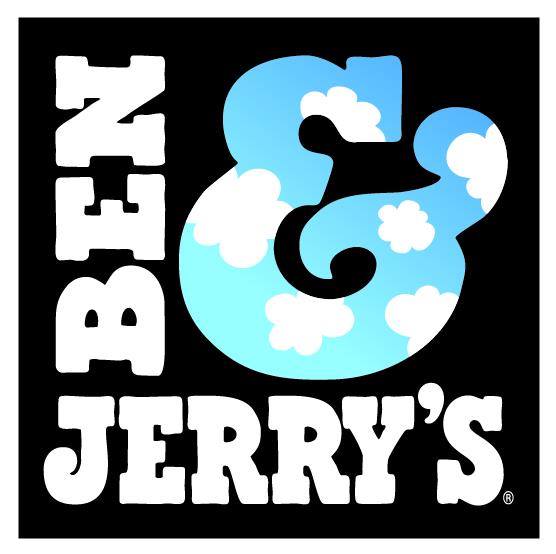Although current events have led to frequent conversations around politics, racial equity, systemic race, and implicit bias, most brands are avoiding the very sensitive topic.
Ben & Jerry’s, the Vermont based producer of premium ice cream, frozen yogurt, sorbet, and non-dairy has taken a different approach.
“Since the company’s founding, almost 38 years ago in 1978, Ben and Jerry really aspire to use the company not just as a platform or vehicle to make the best ice cream but also to support progressive social change and social justice,” said Chris Miller, Activism Manager.
Current topics of focus include marriage equality, issues on climate, climate justice, LGTBQ rights, mandatory GMO labeling, and racial and economic inequality.
“So as we moved towards 2016, we developed this campaign called “Democracy is in your hands” that highlighted these fundamental problems in our democracy that we believe contributing to deepening these inequalities, both racial and economic,” Miller explained.
He highlighted that two major concerns that Ben and Jerry’s has seen:
“One is this issue of unlimited, unregulated, undisclosed amounts of money in the political system and the opposite side of that same kind of corrosive coin is this issue of a erosion of voting rights in a number of states around the country,” Miller said. “A number of states that have reduced early voting, closed polling places, a number of states that have instituted discriminatory voting ID laws.”
Their team has been focused on highlighting these issues in several different ways.
In May, the ice cream producer released a campaign flavor called “Empower Mint, a flavor to benefit democracy,” which went along with its social justice campaign alongside the NAACP at a North Carolina rally. A portion of the profits from the new flavor will also go to support grassroots efforts in North Carolina.
The announcement involved a call to action for consumers to take action by calling on Congress to reauthorize the Voting Rights Act, which would require states to seek preclearance from the Justice department before making changes to laws that impact voter access.
It also included groundwork in North Carolina working with a coalition of groups including the NC chapter of the National Association for the Advancement of Colored People (NAACP) and others to support a statewide voter registration and get out the vote effort.
“As we become more involved with advocates, activists, and others who are working on the issues of racial equity, it sort of became clear to us that we couldn’t be working on these sensitive issues around racial equity, systemic races, and implicit bias without having a point of view on the black lives matter issue,” Miller explained.
Ben and Jerry’s put out a request to ask others to join them in not being complicit.
The release stated: “We do not place the blame for this on individual officers. Rather, we believe it is due to the systemic racism built into the fabric of our institutions at every level, disadvantaging and discriminating against people of color in ways that go beyond individual intent to discriminate.”
They urged for people to come together to better our society and institutions so that “we may finally fulfill the founding promise of this country: to be a country with dignity and justice for all.”
“All lives do matter. But all lives will not matter until Black lives matter,” Miller stated. “We see that statement as sort of a beginning of a conversation with our fans and consumers, not a end point.”
According to Miller, Ben & Jerry’s intent is to really focus external and internal efforts to focus on issues of systemic racism, institutionalized racism and implicit bias.
Their release on the issue caused some controversy when Blue Lives Matter, a group made of current and former law enforcement officials and their supporters, asked for a nation-wide boycott of Ben & Jerry’s Ice Cream
“Ben & Jerry’s went beyond making a statement in support of civil rights when they actively accused law enforcement of widespread racism,” Blue Lives Matter wrote in a statement. “By spreading these false and misleading statements, Ben & Jerry’s lends an appearance of legitimacy to the baseless claims that police officers are killing men based on the color of their skin.”
“I think the Black Lives Matter movement has primarily committed itself to non-violence, and it is also true that the movement itself was born as a desire to stop violence,” Miller said, explaining that the few horrible instances of violence against police officers by individuals doesn’t make the whole movement violent.
“To tar what is a modern day civil rights movements with the acts of a few criminals is not helpful,” he added.
The company also received support from fans and consumers when they released a piece of content called “7 Ways We Know Systemic Race is Real,” which led to a record number of digital and social engagement.
The company estimated that 80 percent of responses from consumers and fans were supportive while 15 percent of people shared opposition in a respectful way and 5 percent of contacts responded racist and hateful comments.
But that won’t stop Ben & Jerry’s team from continuing their mission.
“This is likely not going to come as a shock to you that we are a predominately white company based in one of the whitest states in the country and we sell a lot of ice-cream to white people,” Miller said.
“I think that’s an opportunity- I think we as Whites need to acknowledge this issue of systemic racism, we need to have conversations about it and unless we can do that, we cant move our society towards justice,” he added.
Ben and Jerry’s also has an internal mission to focus on diversity. As a wholly subsidiary of Unilever, they have revamped HR hiring and recruitment policies so that includes expanding the channels on where they post jobs, set new requirements for candidate pools for positions, and changed the way in which our interview panels are comprised and operate.
The company has also taken a step along with parent company Unilever to remove the question of whether or not someone has been convicted of a felony in the first screen for candidates and implemented Inclusivity and Equity training for employees at the company’s headquarters in Vermont.
“I don’t want to oversell this but we are developing a more robust employee engagement learning journey around these issues of systemic racism and implicit bias so we have taken a few steps on that learning journey,” Miller said, as the company is building a more comprehensive plan for 2017.
His advice for other brands?
“The corporate community has been noticeably absent on this issue around discrimination against Black Americans and I think obviously discriminating against anyone, whether race or sexual orientation, gender, etcetera, is unacceptable,” he stated.
“It’s my hope that if companies like Ben & Jerry’s step out on this, that we are going to create a space for more companies to step in behind us and support this movement.”


